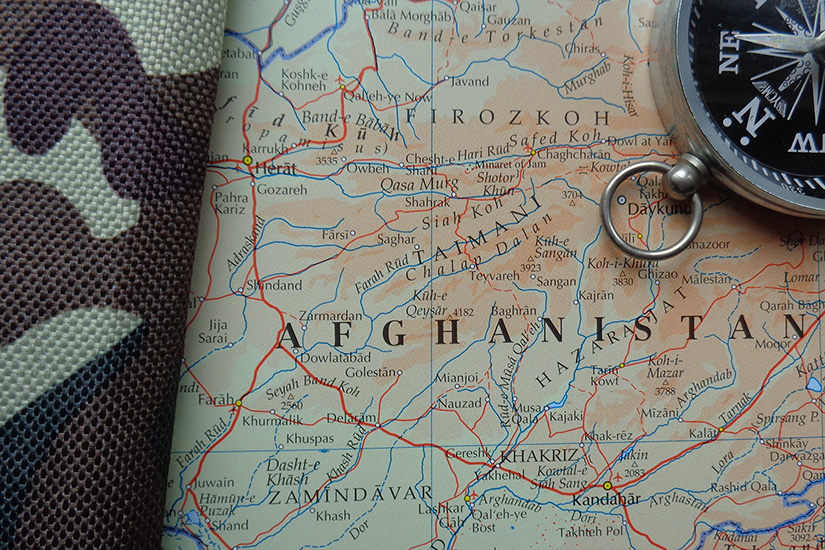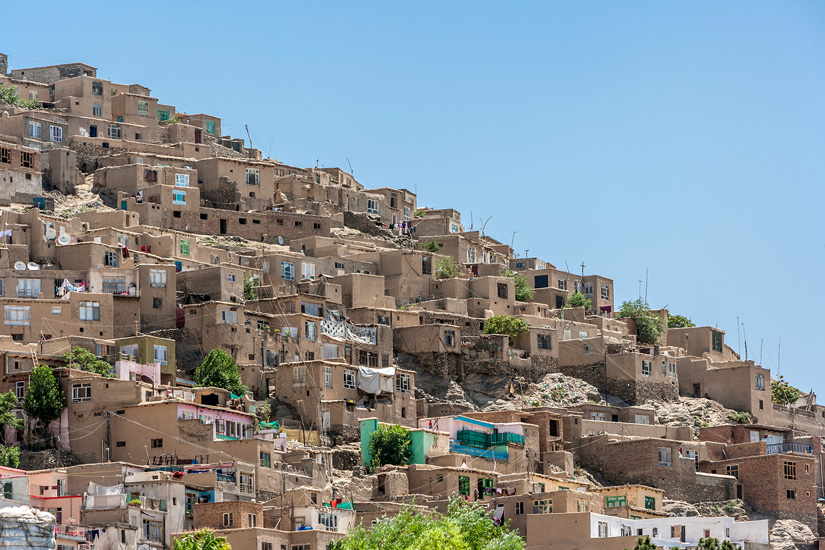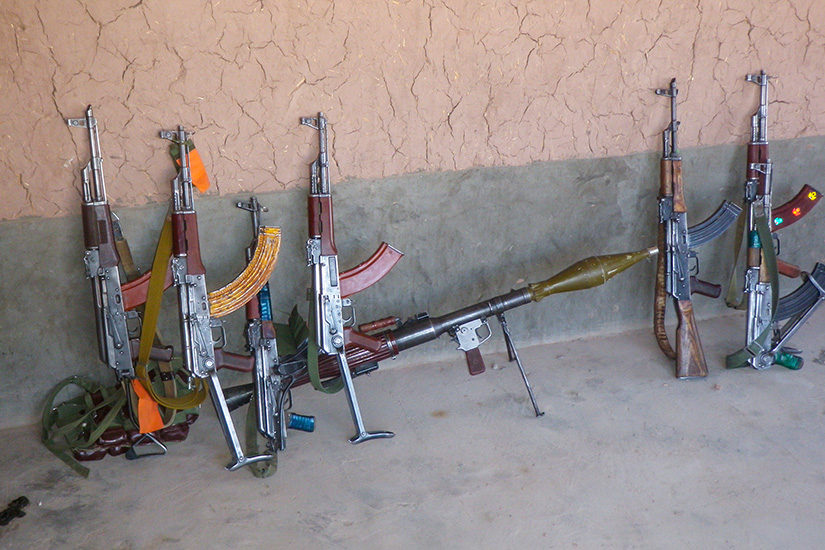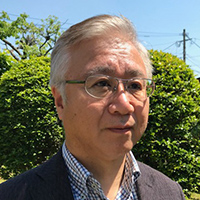On August 15, Taliban forces captured the Afghan capital of Kabul with little to no resistance. President Ashraf Ghani fled the country with his family and closest aides, and the government that had been established with the support of the international community, including Japan, collapsed. The world must now ponder how to deal with the country’s new leaders.
How will the Taliban rule Afghanistan? And how should the international community deal with the new regime? While details are still emerging, I offer my preliminary speculations below based on available reports.

Why the Ghani Government Crumbled
There are two possible explanations for Kabul’s abrupt fall. The first is that the government never had the broad support of the Afghan people, who dislike foreign influence on their own culture and customs, as I elucidated in my previous article on this site. Former Japanese ambassador to Afghanistan Hiroshi Takahashi noted in March this year that the government’s grip extended only to urban districts and main thoroughfares, with the rest of the country effectively being under the control of insurgents. According to a tribal leader near Herat with whom Takahashi spoke when he was an advisor to the UN Food and Agriculture Organization, the Taliban had already made inroads among tribal chiefs and local residents[1]. The picture that emerges is of the Taliban launching an offensive—with sizable public support—against isolated pockets of government control after President Joe Biden announced in April that he would pull all US troops from Afghanistan.
The second potential reason is that even provincial governors had lost faith in the government and were siding with the Taliban in the face of a US military drawdown. Speaking to Al Jazeera soon after the takeover, Taliban spokesman Mohammad Naeem promised that the group would provide safety for everyone and were ready for dialogue with all Afghan figures, pointing to the provincial governors whose positions remained unchanged as proof no one would be excluded. Given that the Ghani government’s grip on power was tenuous, regional leaders would naturally welcome any overtures from the Taliban.
As Kabul fell, Abdullah Abdullah, president of the High Council for National Reconciliation, was in Doha, Qatar, managing negotiations for a transfer of power and was scheduled to be joined by a larger group led by President Ghani. It could be argued, then, that Kabul’s takeover by the Taliban was largely anticipated and that Ghani, rather than work with the Taliban in a new government, was actually anxious to leave the country to secure the safety of himself, his family, and his close aides as Taliban forces swept through provincial capitals and other major cities one after another.

Twenty Wasted Years?
Immediately after the Taliban’s takeover, Kabul Airport plunged into chaos, overflowing with Afghans desperate to leave the country. A dispatch by a Kyodo correspondent noted that the main road to the airport was backed up and jammed pack with cars; men in turbans—a Taliban symbol—were seen in local grocery stores, and some buildings displayed the white Taliban flag as a sign of welcome; a beauty salon employee was seen hurriedly removing a poster of a woman, perhaps out of fear of reprisal. These scenes suggest that residents are anxious about a return to Islamic fundamentalism of two decades ago.
Spokesman Mohammad Naeem seemed to allay such concerns, saying that the Taliban did not seek to live in isolation and hoped to have peaceful relations with foreign countries. All embassies and diplomatic missions were safe, he asserted, adding that the group respected women’s and minorities’ rights and freedom of expression within sharia law. These announcements were not doubt targeted at an international audience.
International isolation, of course, would be nothing new for the Taliban; two decades ago, when they controlled 90% of the country, their rule was recognized by only three countries: Pakistan, Saudi Arabia, and the United Arab Emirates. The Taliban were also under UN sanctions for harboring members of al-Qaeda. They deprived women of their rights, banning them from working, and were severely condemned by the international community for destroying the giant Buddha statues in Bamiyan valley.
They were driven from power in the war in Afghanistan that began in October 2001, and for the next 20 years the international community, Japan included, provided financial, technical, and human support to promote peace, reconstruction, and security so that the country would not once again become a haven for terrorists. Such assistance included infrastructure projects like the construction of roads and airports and improvements in healthcare, but probably most notable for those of us in Japan was the transformation of desert areas into productive farmland through the building of canals, a project supervised by Tetsu Nakamura of Peshawar-kai before he weas tragically assassinated. Progress was also made in the fields of education and women’s social advancement.
Not even the return of the Taliban is likely to wipe away all such achievements, notably the advances made by women, and once more relegate the country to isolation. Naeem was not the only Taliban official to suggest that the new regime would be different from the one that ruled Afghanistan 20 years ago. Qari Salahuddin, the Taliban’s central security official, said they want participatory government with various components of the Afghan people, adding that no one will be able to monopolize power.
In addition, former Afghan President Hamid Karzai announced on August 15 that he was forming a coordinating council with National Reconciliation President Abdullah and Hesb-e-Islami party leader Gulbuddin Hekmatyar to manage a peaceful transition of power. Hekmatyar had fought against Kabul alongside the Taliban for the past 20 years and may be able to persuade Taliban leaders to embrace less restrictive policies.

What Japan and Other Countries Should Do
Given the above, there are a number of issues that Japan and other countries should prioritize in dealing with the new regime.
First, the international community needs to be united in its response. The new government should be recognized only after it clearly commits to a policy of non retaliation against former government officials and staff and promises to uphold women’s rights. While Russia and China have stated they will maintain their embassies and cooperate with the new regime, the UN must step up and take the initiative, ideally with the G7 countries standing firmly in their support for the UN measures.
Second, the Taliban’s relationship with al-Qaeda must be closely monitored. The two groups are unlikely to collaborate, as the United States has emphasized that the Taliban must cut any ties with the terrorist organization. Media reports note, though, that among the 5,000 to 7,000 detainees at Bagram Air Base who were freed by the Taliban were many al-Qaeda operatives. The international community should keep an eye on the Taliban–al-Qaeda relationship and confront the new regime whenever issues arise.
Third, any assistance provided by the international community should be people-oriented. The agricultural development project led by Tetsu Nakamura is a prime example. Regardless of whether the Taliban are recognized by foreign governments as the legitimate representatives of the Afghan people, they should be invited to work with local residents and international groups, contributing their views on village development projects. Such forums for consultation can address other issues as well, including girls’ education.
Lastly, a people-oriented approach should also be embraced in urban areas. Since Islamic law covers all aspects of daily life, its application in Afghanistan would certainly be justified. But the Taliban should take note of how other countries are applying its tenets. Women in urban areas have come to enjoy greater rights and access to education over the past two decades. This must be taken into account in formulating policies to prevent an exodus of talented human resources and a decline in urban vitality. The international community must also be sensitive to people’s needs and maintain close dialogue with the Taliban in providing humanitarian aid and assistance for the country’s recovery, reconstruction, and development.
(2021/09/29)
Notes
- 1 Hiroshi Takahashi, “Afuganisutan ni okeru ooinaru jikken” (The Great Experiment in Afghanistan), ARDEC, no. 64 (March 2021), pp. 42–45.

